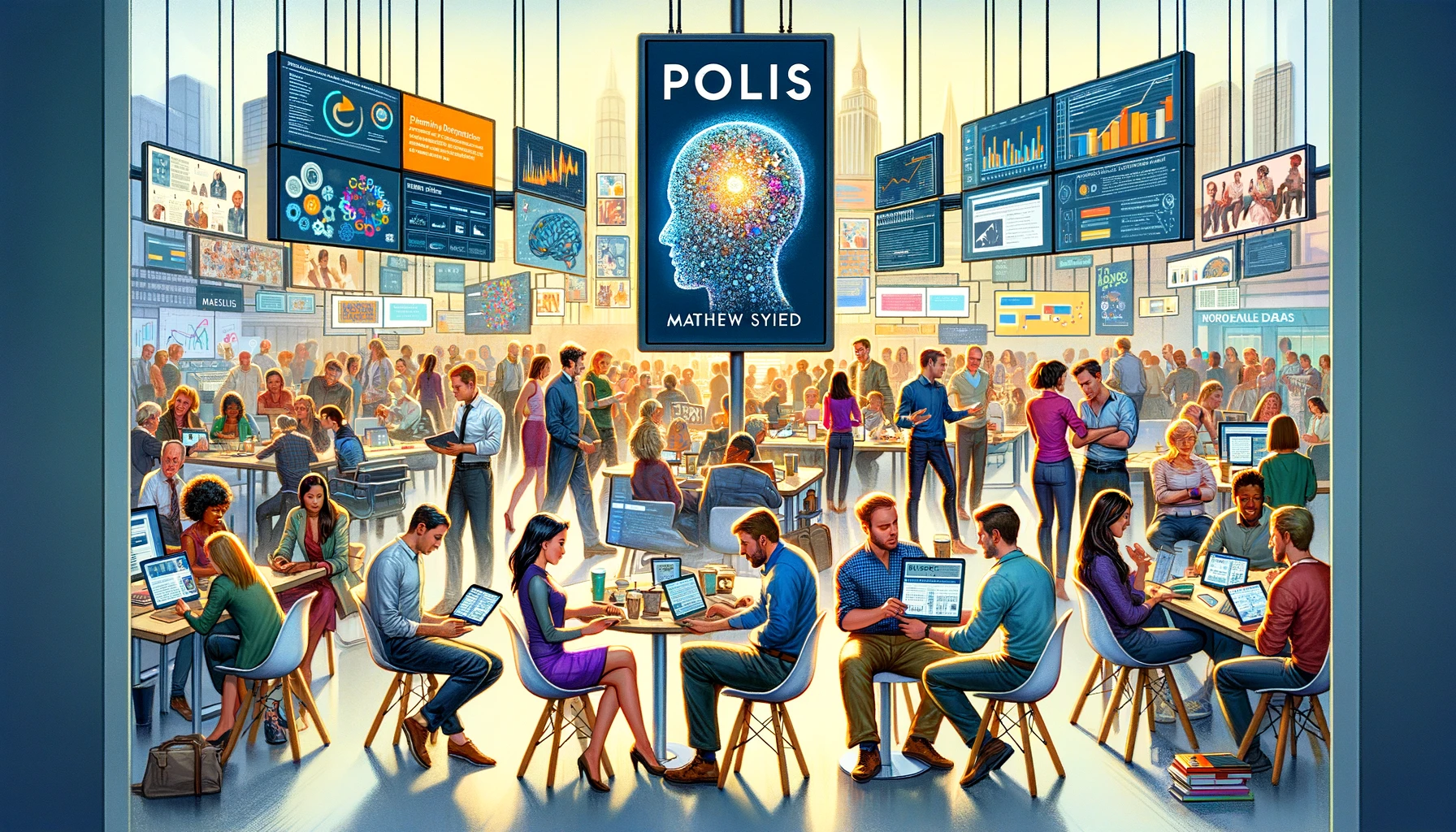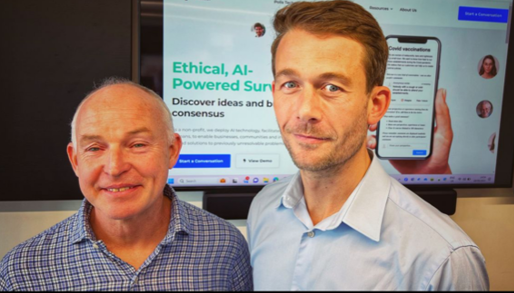Agile Working AI-Powered Survey
Agile Working Insights: Key Takeaways from Leeds Digital Festival Polis Survey of over 1,000 votes
On 26 September 2023, a groundbreaking session at the Leeds Digital Festival, led by Andrew Gray of the Crowd Wisdom Project and Royd Brayshay of Leeds digital company New Redo, culminated in a live AI-powered survey capturing critical insights on agile working, during which over 1,000 votes were cast. This Polis AI survey, largely conducted during the event, offered a unique lens into the evolving perceptions and realities of agile working among professionals in the digital sphere.
The Survey: A Window into Agile Working
The live session – an engaging platform for digital enthusiasts and professionals – served as the perfect backdrop for the Polis AI survey, capturing real-time opinions and fostering a dynamic exchange of ideas on agile working. The real-time data can be found here.

Key Findings:
- Mental Health and Agile Working: Contrary to popular belief, only 17% of the participants felt that working from home hindered their mental health. This finding somewhat challenges the narrative around remote work and mental well-being, suggesting a more nuanced understanding among the digital community in Leeds.
- Global Talent and Organisational Growth: A resounding 85% agreed that agile working allows for global hiring, thereby enhancing organisational diversity and reach. This underscores a growing recognition of remote work as a gateway to global talent pools.
- Productivity Amidst Home Life: A significant 70% disagreed that home-based tasks lead to less work, indicating that attendees did not perceive everyday distractions as major obstacles to productivity in remote settings. However, employers may be uneasy to read that 30% believed that home tasks, such as stacking the dishwasher, led to less work being carried out.
- Urban Impact: Only a minority (17%) believed that agile working is detrimentally impacting cities, challenging the notion that remote work is eroding urban economies.
- Parenting and Work-Life Balance: The survey revealed that 86% found remote working conducive to greater involvement in their children’s upbringing without compromising work productivity, highlighting the positive work-life balance afforded by agile working models.
- Diverse Work Environments: Unanimously, participants agreed (100%) that work environments should cater to individual preferences, emphasising the need for flexible and diverse working conditions.
- Office Work Preference: The survey showed a strong inclination – 80% – against office-only work models, favouring more flexible arrangements. Employers should take note!
- Junior Staff and New Starters – 83% thought that Junior Staff and New Starters need to work face-to-face with their colleagues. (Although junior staff and new starters would, of course, need to work face-to-face with more experienced and more senior staff).
Conclusion: Embracing the Future of Work
The insights from the Leeds Digital Festival’s Polis AI survey, predominantly conducted in a live setting, reveal a forward-thinking approach to agile working by this Leeds audience. The preferences for flexibility, acknowledgment of the potential in global talent hiring, and a balanced view of productivity and home life, showcase a readiness to embrace and optimise the evolving work paradigms.
As organisations and professionals navigate the future of work, such insights are invaluable in shaping strategies that align with the realities and aspirations of today’s workforce. If you want to try a Polis AI survey – on a pay for it, only if you to want to basis – get in touch with Anderw and his team.





